Coffee Tasting Class & Roastery Tour at City Boy Coffee
Sample a diverse selection of coffees sourced from around the globe, then roasted right here in New York City!


Bikes are few in the city of Los Angeles. It is hard to believe that an initiative such as the California Cycleway even included a place like Los Angeles at one point in history. Much consideration and emphasis in city and urban planning has long catered to the automobile owner because of their prevalence here. However, many measures over the years have been taken to move Los Angeles into a bicycle friendly direction (just this last week LA received a bronze level distinction as a bike friendly community from the League of American Bicyclists).
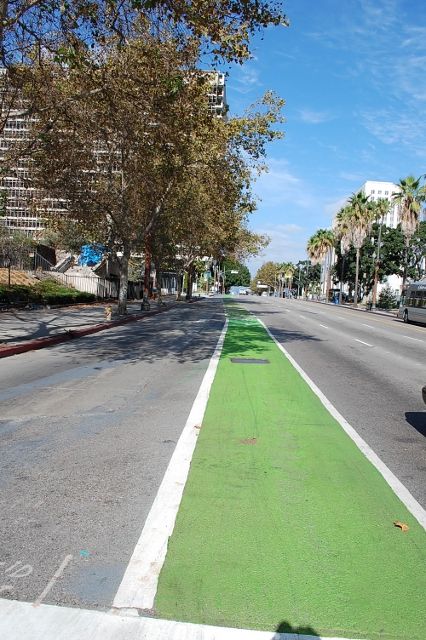
Neon green bike path on Spring Street
Over the past couple of years, numerous bike lanes opened up throughout the county, with more in the works. The Los Angeles Department of City Planning and Transportation proposed and approved a 5-year Bike Plan aimed at implementing at least 200 miles of bikeways every 5 years. Downtown Los Angeles also saw its first neon green painted bike lane, mirroring those of other successful bike-friendly cities such as: Copenhagen, Utretch, and Bogota (San Francisco is also introducing Green Carpets to up their level of bike-friendliness). Earlier this year, it was also announced that a new bike share plan will be coming to Los Angeles, allowing many the opportunity to rent bikes at an hourly or daily rate, at any of the soon-to-be bike kiosks across the city. Along the way, a lot of bicycle advocacy groups and community initiatives have also sprouted over this common interest of the two-wheeled.
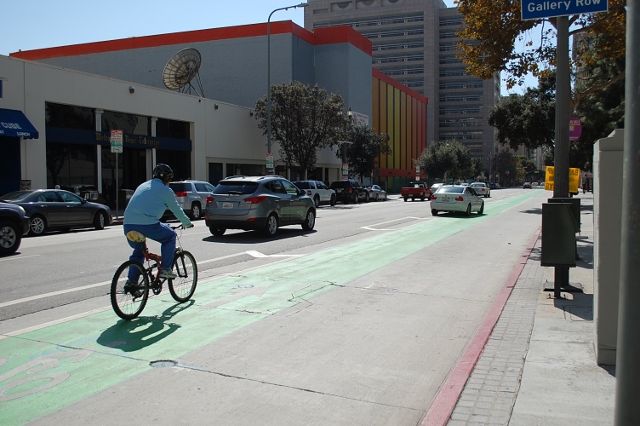 Spring Street
Spring Street
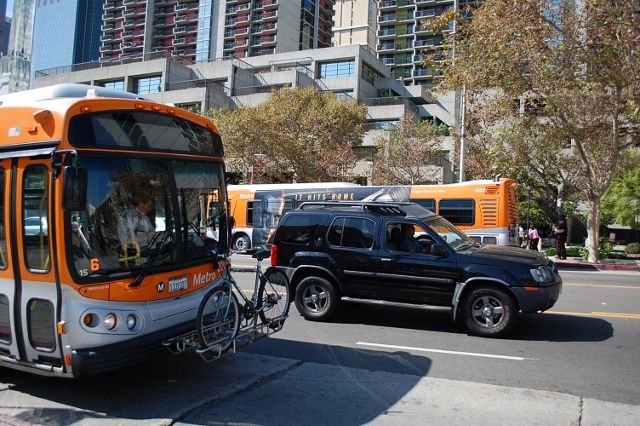
LA Metro bus with frontal bike rack
The Los Angeles County Bicycle Coalition and the Los Angeles County Department of Public Health’s PLACE program both have come about with initiatives to increase ridership. LA Metro is running bike and pedestrian paths alongside the dedicated bus paths which are part of their Bus Rapid Transit system, with bike racks and lockers at the stations. Many community initiatives have also spawned advocating for the many beneficial results bicycling can bring, for instance health, and a decrease in congestion. CicLAvia, a nonprofit organization, puts on an annual bike/pedestrian event by closing down streets of LA and encourages people to get out of their cars and on their feet, bike, skateboards, etc. to experience and enjoy the urban space that makes up the city.
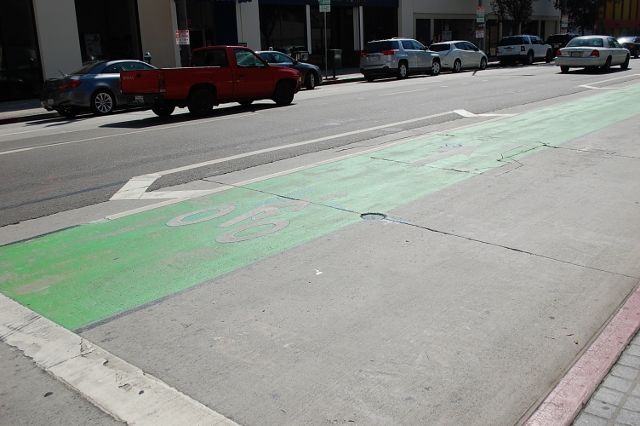
Spring Street
Community non-profit bike cooperatives are also gaining popularity through their communal-based exchange of knowledge and tools approach to the normal bike repair shop. At places such as the Bicycle Kitchen, Bike Oven, and the Valley Bikery, you can take your bike in and learn how to fix your bike yourself, as opposed to the ordinary “get in, get out” approach of normative repair shops. This form of engagement not only connects the novice (and experienced) bikers with their own vehicle, but also builds a community of networks and cyclists, all sharing similar interest and passions. The co-operatives also have lots of events to bring the community together, i.e. group rides, and partnerships with other advocacy groups (such as CICLE) to create a stronger alliance of cyclists in a city where motorists have long been the favored.
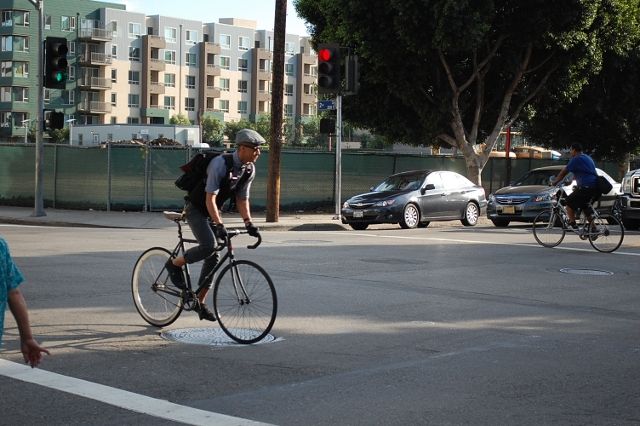
2nd Street
Times are changing here in LA: we have more days of sunshine per year, soaring gas prices, worsening congestion, and many personal health goals. These problems simply cannot be solved by getting on a bicycle, but the situation can be improved by it. It may be daunting to navigate such a big city by bicycle, but with safety precautions, not only is it a thrilling ride, but also one which can open up this space to us. City planners are beginning to pay more attention to cyclists, trying to create better infrastructure to improve cycling conditions. Government and local initiatives are growing in support, but more importantly, an ever-growing community is gaining momentum and voice, to advocate for these changes. Cycling is the new revolution to take place, and the people of Los Angeles should prepare to embrace it.
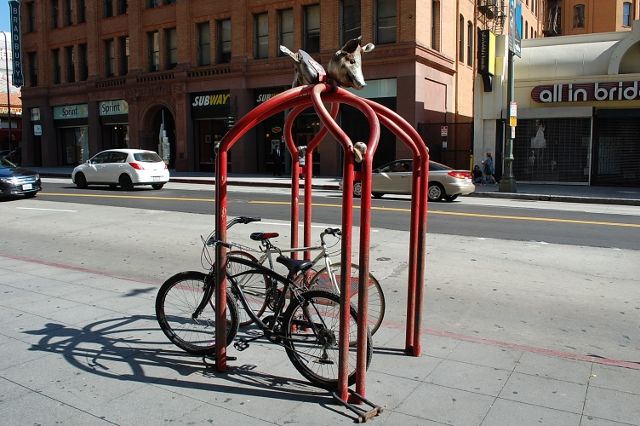
Grand Central Market bike rack
Subscribe to our newsletter